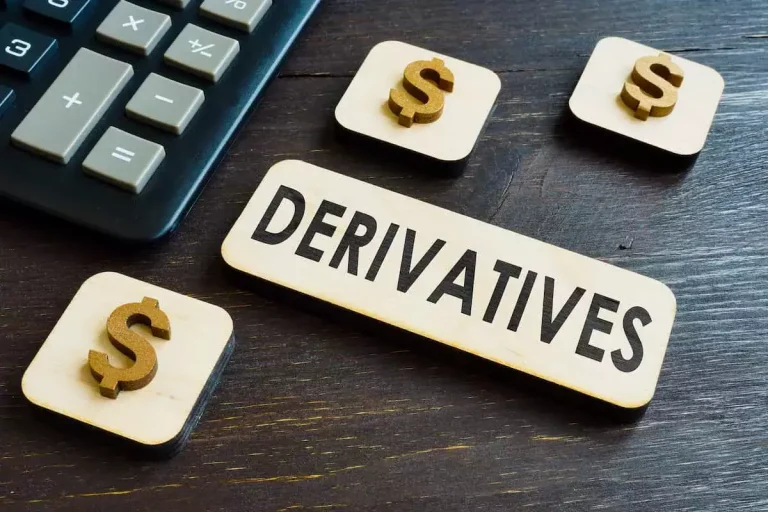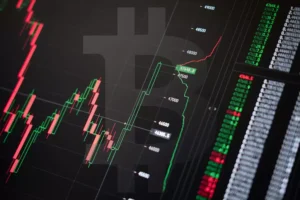If you’re just starting your investment journey or learning the financial markets, you’re probably familiar with exchange traded derivatives (ETDs). This strategy is an effective way of making money, so many investors put part of their capital in derivatives. It lets them earn even in different market conditions. Understanding this topic is critical for arriving at wise investing decisions because of the size of the derivatives market in terms of money.
Putting your funds in various assets to vary the portfolio is a wise risk control tactic. Because exchange traded derivatives are indirect, standardized, and controlled financial tools, many choose to get them. They are perfect for those safeguarding their savings or speculating on changes in asset values since they are often less hazardous than direct investments.
Definition of ETD
Financial instruments known as exchange-traded derivatives are presented on stock exchange platforms. They let capital providers profit from alterations in the other assets’ value, such as stocks, bonds, or commodities, without getting the assets outright. The World Federation of Exchanges reports that in the 1st half of 2021, global derivative trading reached 29.24 billion contracts, an increase of more than 18% from the previous year.
When we compare OTC vs exchange traded, ETDs are a go-to alternative for ordinary speculators. The complexities of items traded and the intricacy of instruments in the OTC market can be a source of confusion.


Turnkey Brokerage Solution For Your Business
Get the most profitable fully licensed fx/crypto brokerage software or ready-to-operate business in 48 hours. Best-in-class web & mobile trading platforms, sales-driven CRM, full integration with MT4/5, and 150+ payment providers.
Types of Exchange Traded Derivatives
In the present day, a diverse array of exchange-traded derivatives is readily available. Whether used for risk management, speculation, or portfolio diversification, they contribute to the vibrancy and adaptability of modern investment strategies. Now, let’s touch on exchange traded derivatives examples:
Stock ETDs
It is the most significant traded asset in these contracts. It includes options and stock futures. With the aid of these tools, traders profit from shifts in stock costs.
Index ETDs
Index derivatives are contracts that trade as both futures and options and are based on an index. A subset of investors wishes to get or sell every stock that makes up the stock exchange’s portfolio in addition to individual equities. The portfolio includes equity-linked derivatives and is structured as a single trading entity for accounting purposes. Often, they serve as standards for assessing the success of investments.
Commodity ETDs
In this case, gold, silver, oil, and other resources make up the underlying asset. You may trade futures for these commodities. With these contracts, you may profit from changes in the commodities cost.
Foreign exchange ETDs
With the help of these tools, traders profit from alterations in exchange rates. On specific currency pairings, traders can buy or vend futures and options.
Bonds ETD
It enables the trading of bonds as the underlying token. As an illustration, a national exchange provides a specific platform for bond futures.
Real estate ETD
You may trade real estate without really owning it, thanks to these derivatives. Since they can be challenging to comprehend and handle, investors should be well-versed in this field.

Features and Advantages of Exchange Traded Derivatives
These contracts provide a number of advantages that might assist you in making lucrative transactions. Let’s dwell on the most pivotal positive sides:
Standardization
The terms, sizes of transactions, pricing, and derivatives processing of settlement are all clearly outlined. It implies that every contract has the same terms, facilitating control over them.
Ease of transactions
Trading ETDs allows traders to exit positions quickly. For instance, they don’t have to wait for the present contract to expire; they sell it now and acquire a new one immediately. They can react swiftly to stock market developments as a result.
Speculative nature
Many derivatives are volatile. Moreover, you can trade them on leverage for almost 24 hours on weekdays at a low cost. To intraday deals, algorithmic traders, speculators, and scalpers actively use them. You can expect that the market for such contracts will be more speculative. It’s logical since participants are not obliged to accept the delivery of the underlying token. Because of this, trading volumes often grow to such a scale that the value of the underlying assets becomes less than the size of the derivative markets.
Easy offsetting
Buying ETD via markets is super easy since traders offset any outstanding contracts. Selling one’s current position in the market and purchasing an offset position at a revised charge tend to be two simple ways to settle an ETD.
Low cost of transactions
Compared to common shares or bonds, dealing with the derivatives markets offers lower transaction charges. These contracts function as an excellent risk management tool, which lowers costs.
Ability to reduce risks
By keeping the underlying assets in the portfolios and adding derivatives to them, investors can cut down the general risk in those assets.
Centralized derivative exchanges issue countless financial derivatives. The exchange publishes fresh derivatives — almost exact replicas of the ones which expire first. Therefore, consistency is another feature of commonly utilized derivatives.
Disadvantages of Exchange Traded Derivatives
Although exchange contracts offer advantages, it is also pivotal to keep certain downsides in mind. Their clarity and consistent conditions, which offer stability and dependability, are among their primary benefits. However, the same standardization may also constitute a constraint, particularly if the parties wish to modify terms to suit their requirements or the market’s condition.
Exchange contracts are immutable and do not let the parties alter their minds at any time. Hence, flexibility in transactions is impossible. It might be an issue if you have to swiftly adjust to market conditions or factor in the particular agreement’s parties’ demands. Therefore, even with the stability that comes with standardization, low flexibility may be a key factor to keep an eye on when deciding between exchange and other kinds of contracts.
ETDs vs. OTCs
ETD finance contracts provide several benefits, chief among them being uniformity. The predefined terms ensure all parties are trading identical products. Nevertheless, the uniformity may also work against the parties because it restricts their ability to modify the agreements to suit their demand.
On the other hand, because people can agree on particular conditions, OTC derivative contracts may be more flexible. However, since there are no standard terms, there might be less liquidity and greater risk.
Another all-important advantage of exchange contracts is the elimination of the default risk. Because the clearinghouses ensure the legality of the deals, investors may be assured their investments will be performed. On the other hand, OTC trading puts market players at increased risk due to their reliance on counterparties’ dependability.
High levels of openness are some other attributes of ETDs. Pricing and volume data are open to the public. Investors are better able to make judgments because of this transparency. At the same time, because OTC derivatives transactions occur in private and make it challenging to get all-embracing market data, they may be less transparent.
The primary distinction is that exchange contracts function in a regulated environment under the watchful eye of regulators, guaranteeing dependability and safety. OTC derivative contracts might have different levels of regulatory supervision, which could impact their stability and safety.
To cap it all, compared to OTC derivatives, assets that are exchange-traded have lower risk. They are very liquid and controlled. There are still hazards, though, if the investor deals with options or futures. On the other hand, you may utilize derivatives for market speculation and hedging on asset prices if you understand the subtleties of these contracts.






